How new funeral restrictions affect the bereaved in Scotland
- Published
- comments
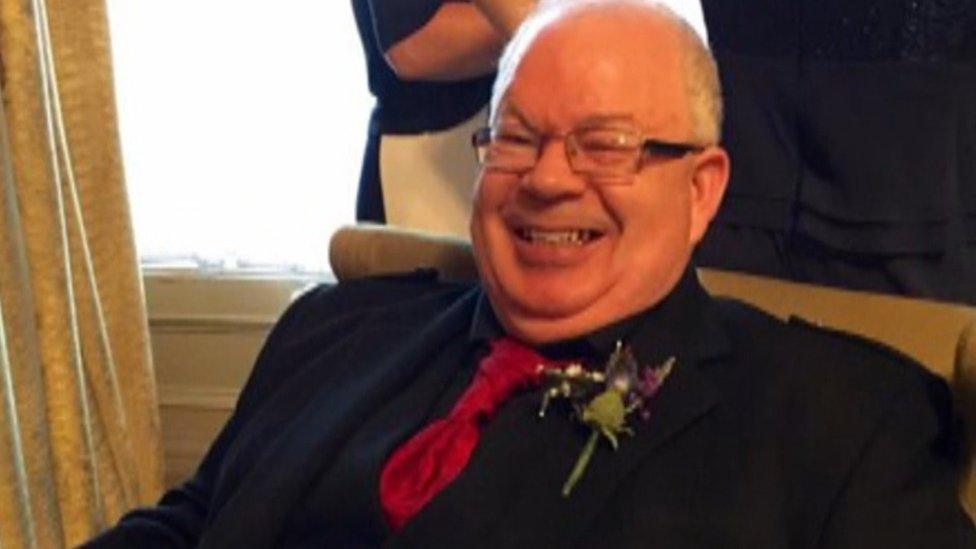
Danny Cairns died in Greenock just over a week ago
As the initial shock of lockdown measures subsides, reality begins to set in - particularly for families affected by those who have lost their lives to the coronavirus.
Several restrictions have been placed on funerals to minimise further spread of the illness, which presents grieving families with a challenging new set of circumstances.
Danny Cairns, from Greenock, was one of the first victims of the coronavirus in Scotland. He was 68 but said to have had no underlying health conditions.
His brother Hugh lives in California and is not able to attend the funeral because of travel restrictions.
"He wasn't just my brother he was my best friend," he says.
"When Danny is put to rest it is just going to be his immediate family," Hugh says.
But what are the new restrictions and how do they affect loved ones?
Can I attend funerals?
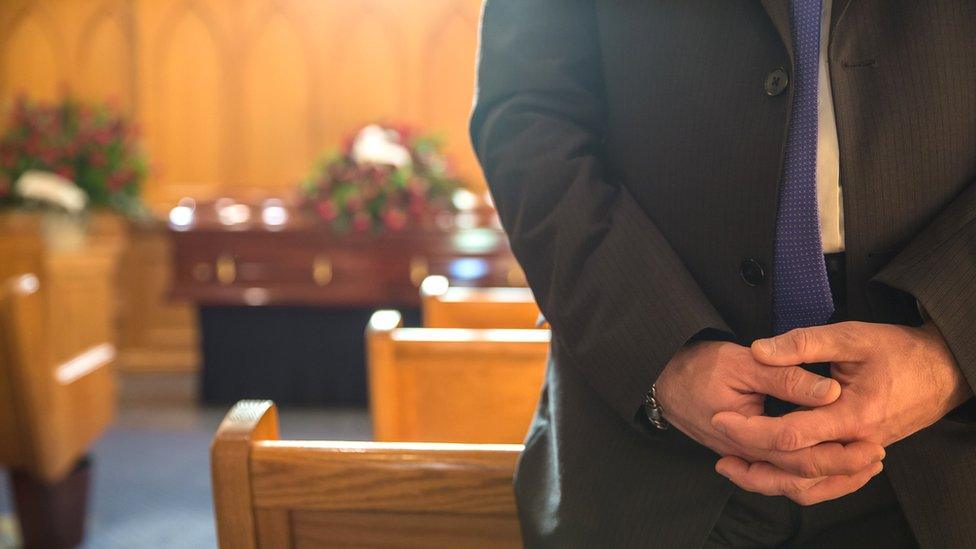
Church funerals in Scotland will be limited to very close family during the coronavirus outbreak
That depends on how you know the person who has died.
Following the passing of the UK Coronavirus Bill, Scottish rules on public gatherings are now in force. That means a clamp-down on when you should leave the house, and you need to ask yourself if you have a "reasonable excuse".
Virtually all public gatherings have been outlawed, with the exception of funerals, and only certain people are allowed to attend, under certain sets of circumstances.
So who is allowed to go?
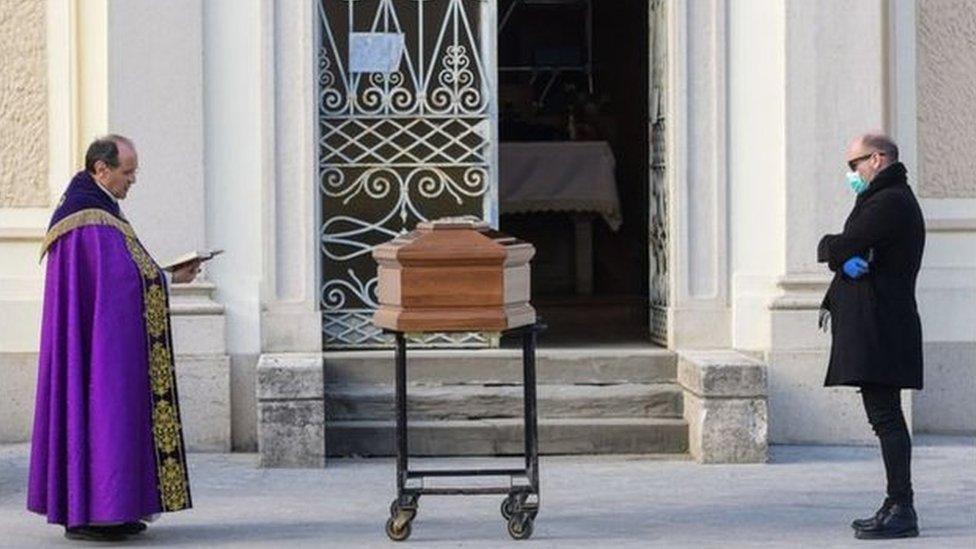
Funeral services have been banned in Italy as an emergency measure
The government says you can go to a funeral if you are attending a funeral of a member in your household, a close family member - or if you are a friend of somebody who has died and will not have any family at the service.
However if you are self-isolating yourself, or if you are in any of the "high-risk" categories, then you are being told to stay at home.
Who counts as a close family member?
This also depends, and seems to be somewhat open to interpretation.
Funeral directors are being told to handle the limiting of attendees "sensitively", and to take into account individual circumstances.
For example, if the deceased person had very few - or no relatives - but a close friend who wants to attend, then that would most likely be OK.
Or in the case of the death of a grandparent, attendance by grandchildren would probably be allowed. The key is communication ahead of time: with the family or the deceased and with the funeral director.
If I am attending, what can I expect?
Social distancing will still apply in the location where the funeral is taking place, so make sure to remember the rules around contact and hygiene.
The funeral director has the responsibility of making sure that the space has enough capacity for those attending to maintain safe distances between people.
So seats will be spread out and you probably will only be able to be physically close to people living in your household full-time.
You will also be expected to use hand-wash before and after, and cough or sneeze into the crook of your arm.
This may feel strange, and you may feel upset that you're not able to be physically close to those attending that you love.
Celebrants and funeral directors are aware of the stress of the situation for those in mourning, and they should try to make you as comfortable as possible.

A SIMPLE GUIDE: What are the symptoms?
MEASURES: What are countries doing?
MAPS AND CHARTS: Visual guide to the outbreak

I have a loved one who is seriously ill, will these rules still be in place a few months from now?
In six months, these regulations will expire and the government will need to decide whether or not it will need to extend the restrictions.
Can I video-call into a funeral?
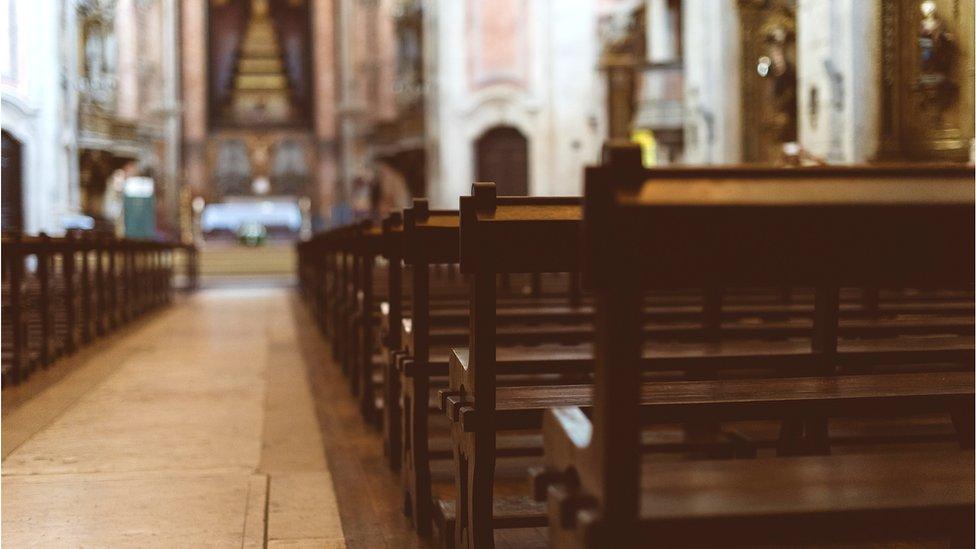
The Church of Scotland and the Catholic Church closed their doors last week, even for prayer, to safeguard congregations
Many funeral directors and celebrants are now using technology to help mourners show their support for a grieving family, through video-calling or by recording a service to be watched later on. Ask ahead and see if arrangements are in place.
Apps like Zoom, Skype, or even Facetime, are ideal for broadcasting funerals to families or friends who can't attend.
For recording ceremonies, a phone which has sufficient storage will work fine. Upload larger files from your phone on to cloud-based platforms like Google Drive or Dropbox beforehand, so that you don't run out of storage half-way through.
Also - if you are arranging a funeral, you may well be able to make arrangements with the parties involved through video technology. Most of the planning and arrangements can be made over video-call, or just the phone.
Again, make sure you keep lines of communication open with your funeral director and celebrant - they can most probably offer advice, as video-conferencing at funerals, weddings and other occasions has been popular for some time.
If I'm not able to attend a funeral, what else can I do?
All charitable donations to the family, or to their chosen organisation, should be made online.
Many families who have lost loved ones in recent times and have not been able to hold a full funeral will be hoping to hold a more casual remembrance gathering later in the year.
This will be a good time to remember the person who has passed away. A delayed gathering also means that those who are overseas may well be able to travel from abroad easily, which many people can't do at the moment.
- Published29 March 2020
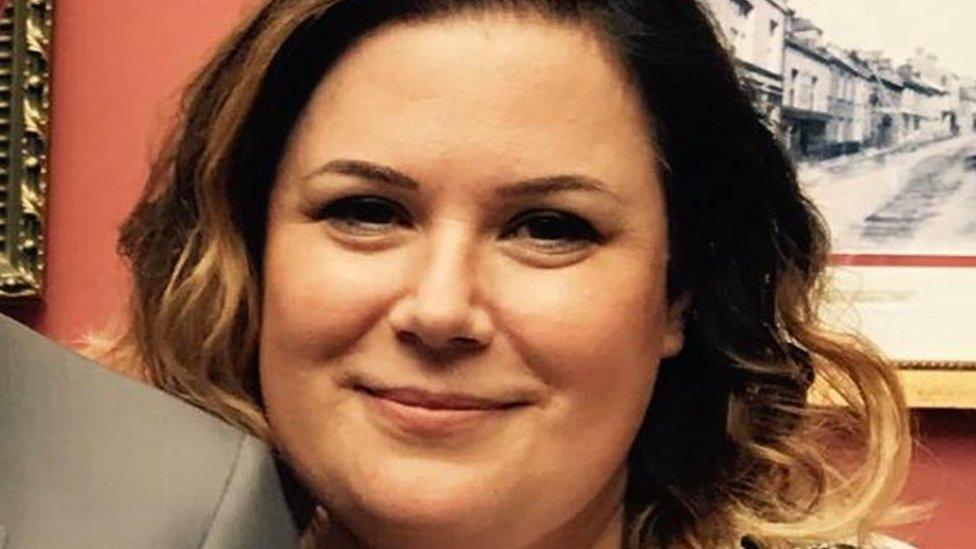
- Published26 March 2020
